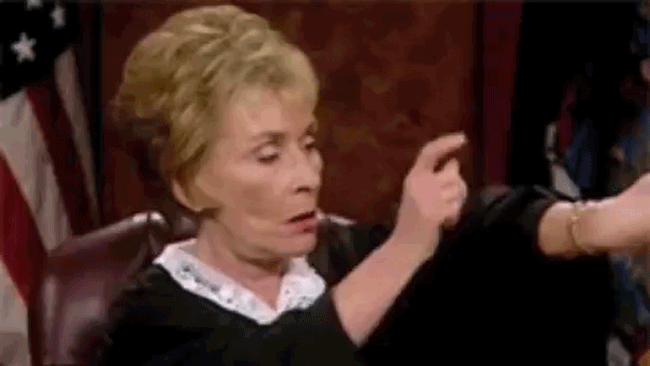
Leadership Lessons from Judge Judy: The Power of Directness, Discernment, and Accountability
When discussing leadership, we often look to corporate executives, political figures, or military strategists. But true leadership principles transcend industries, and some of the most valuable lessons can come from unexpected sources like Judge Judy Sheindlin. While she is known for her no-nonsense demeanor in the courtroom, her approach provides key takeaways for leaders in any field. Here are some leadership lessons we can learn from her style of decision-making, questioning, and holding others accountable.

Leadership Requires Discernment, Not Delusion
As leaders, we often find ourselves balancing between extending grace and standing firm in our discernment. Leadership isn’t just about vision, strategy, or execution. It’s about people. And people are complex. Some are genuine, some are opportunistic, and some will test how much they can get away with. The key is knowing when to give the benefit of the doubt and when to recognize that you’re being played.

The Role of Law and Order in Organizational Success
In every high-functioning organization, success is not accidental. It is the result of structure, discipline, and respect for established rules. Just as societies thrive when governed by law and order, organizations achieve longevity and efficiency when leaders uphold clear frameworks that guide their teams. While creativity and innovation fuel progress, it is structure that ensures sustainability. Leadership without discipline is directionless, and organizations that neglect accountability often crumble under mismanagement.

When Leadership Priorities Go Off the Rails: The Danger of "Fun-First" Leaders
Leadership is more than just hosting events, posting team-building activities, or basking in the social spotlight. It requires strategy, crisis management, deep understanding of policies, and the ability to navigate the real business of the organization. Yet, too often, we see leaders who are deeply engaged in the fun aspects of the job, scheduling retreats, planning celebrations, taking credit for positive PR, while being utterly unprepared when real issues emerge.
If a crisis hits and a leader doesn’t know the policies, rules, or strategic protocols, yet they’ve been hard at work coordinating the next happy hour or decorating the office for a seasonal event, then we have a serious problem. That’s not leadership. That’s negligence.

Signs of a Useless Leader: When the Title is the Only Thing They Have
In any organization, leadership is more than just a title. True leadership requires vision, decisiveness, accountability, and the ability to inspire and empower a team. Unfortunately, there are plenty of individuals who hold leadership positions but lack the qualities that make a leader effective. These "leaders" may have the corner office, the paycheck, and the authority, but their presence adds little to no value.
Here are the biggest signs of a useless leader.